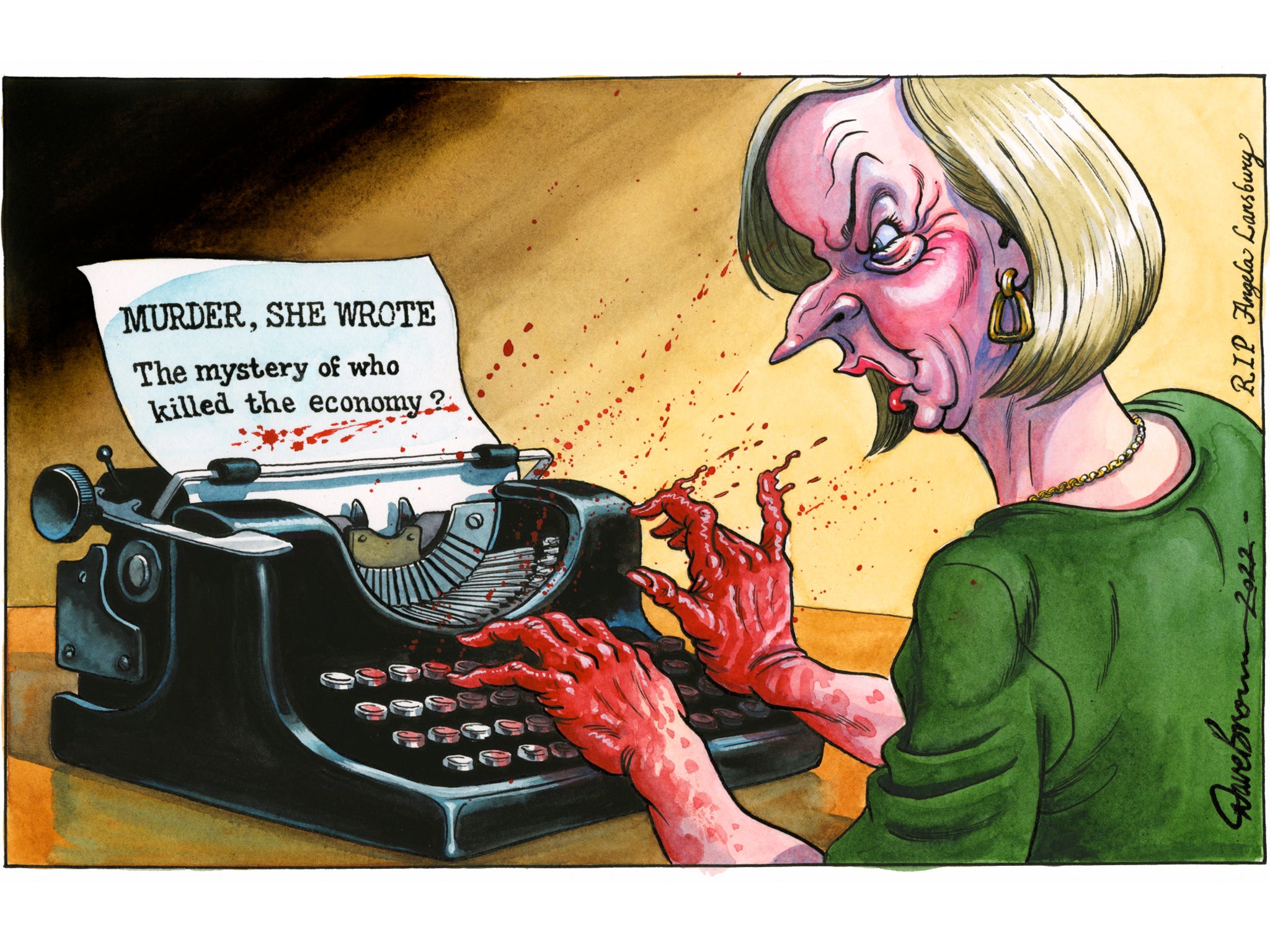All prime ministers find themselves the prisoners of circumstances that restrict their freedom of manoeuvre: a hung parliament, international commitments, the courts, internal dissent, inflation, recession, strikes.
Liz Truss, however, is one of the few who insist on making life more difficult by imposing mutually contradictory obligations upon themselves. It is rather like watching the Great Houdini tying himself up in rope, chains and padlocks as he is being submerged in a glass case full of water. Except, of course, that Ms Truss doesn’t possess any Houdini-like ability to free herself from the trap she has created. She is, to borrow a phrase, “Britannia chained”.
Despite a creditable performance at Prime Minister’s Questions, Ms Truss seems to close off one major escape route from her self-created public finance trap: she appeared to rule out cuts to public spending. This is entirely consistent, to be fair, with the commitments she made during the leadership contest, when she pledged no changes from the last comprehensive spending review; but it also makes it more difficult to see how she will make her numbers on tax, borrowing and spending add up.
The dilemma is acute. Having recklessly cut taxes as the centre-piece of her “plan for growth”, she cannot just put them back up again, aside from reversing the hugely unpopular tax cut in the 45 per cent rate on income tax for the very rich. It is, at least for the time being, a humiliating U-turn too far. It would lead to the sacking or resignation of Kwasi Kwarteng, and further destabilise her leadership.
Neither Ms Truss, her chancellor nor most of her backbenchers will accept “compensatory” tax rises elsewhere – on VAT, say, or reducing personal allowances. Windfall taxes have been extended, and may be extended again, but they might not raise much extra revenue.
Nor will cuts in public spending, even if Ms Truss backed them, find ready support in parliament. It now seems likely universal credit payments will be updated with inflation, while the NHS and defence are partially at least immune from attack. After the Osborne years of austerity and stagnation, there is relatively little scope in cutting departmental budgets still further without the state exiting the provision of certain public goods entirely.
Ms Truss could freeze or increase public spending in nominal terms, allowing inflation to erode the real-terms spend, but again that would imply real-terms cuts in salaries or public workers, and/or deep cuts in services. Cuts in infrastructure investment would undermine both the plan for growth and the political aim of “levelling up”. As ever, Tory MPs, especially from the “left behind” parts of the country would resent such moves.
All No 10 will say, ominously but vaguely, is that “difficult decisions to be taken given some of the global challenges we’re facing”. Taking difficult decisions is something the post-Johnson “cakeist” Conservative Party finds it impossible to do.
To keep up to speed with all the latest opinions and comment, sign up to our free weekly Voices Dispatches newsletter by clicking here
Yet if parliament, and her own stubbornness, won’t allow Ms Truss to raise taxes or cut public spending much, and international investors won’t lend her the money to bridge the gap, what is she to do?
Ms Truss seems to be in denial about this. She seems not to have noticed that the threat of a “gilts strike” is vastly more damaging than anything Mick Lynch could come up with. She still seems to think that so long as she speaks slowly enough and repetitively enough, then the markets and her backbenchers will come around to her plan for unfunded tax cuts. She seems to think the market turmoil was because of her energy price guarantee, but she had already announced that on 8 September, and the markets took it in their stride. The unfunded tax cuts and their presentation were, and are, the intractable problem.
It is all a gift for Labour. The opposition, as Ms Truss points out, is actually in the ludicrous position of demanding she reverse her “kamikaze Budget”, but voting in favour of substantial parts of it, without much effort to explain the discrepancies. But such is the spectacle of Truss drowning in a trap of her own making, no one is looking at the tangle Keir Starmer has got himself into. None of it is boosting confidence, at home or abroad.




Join our commenting forum
Join thought-provoking conversations, follow other Independent readers and see their replies
Comments